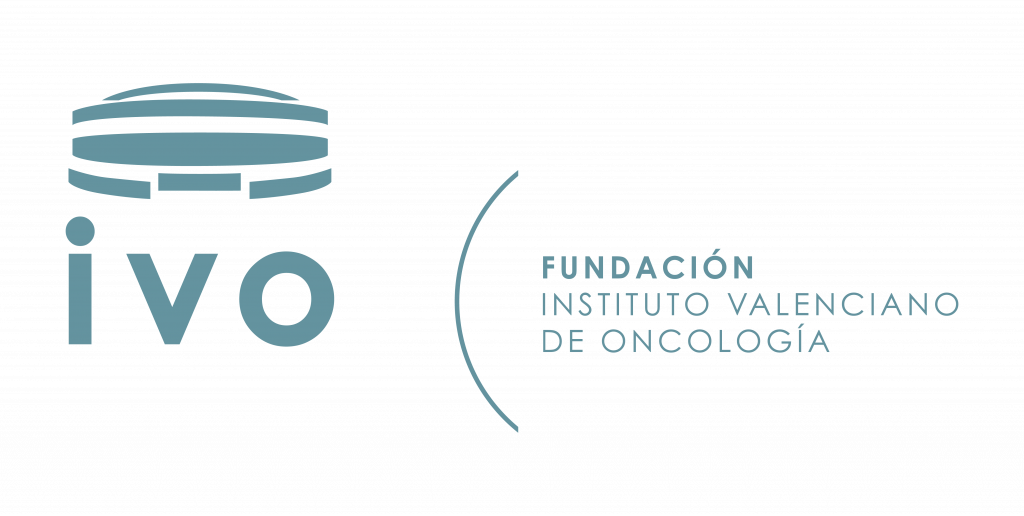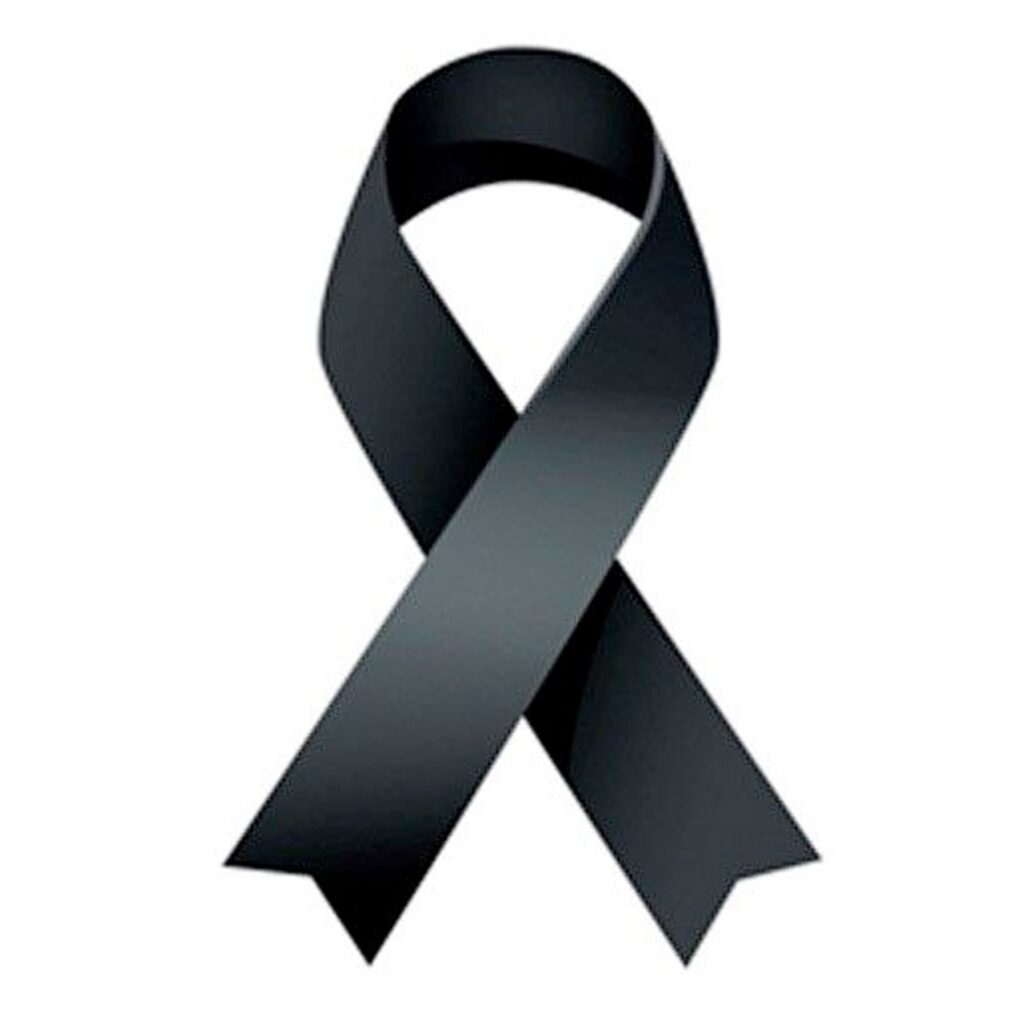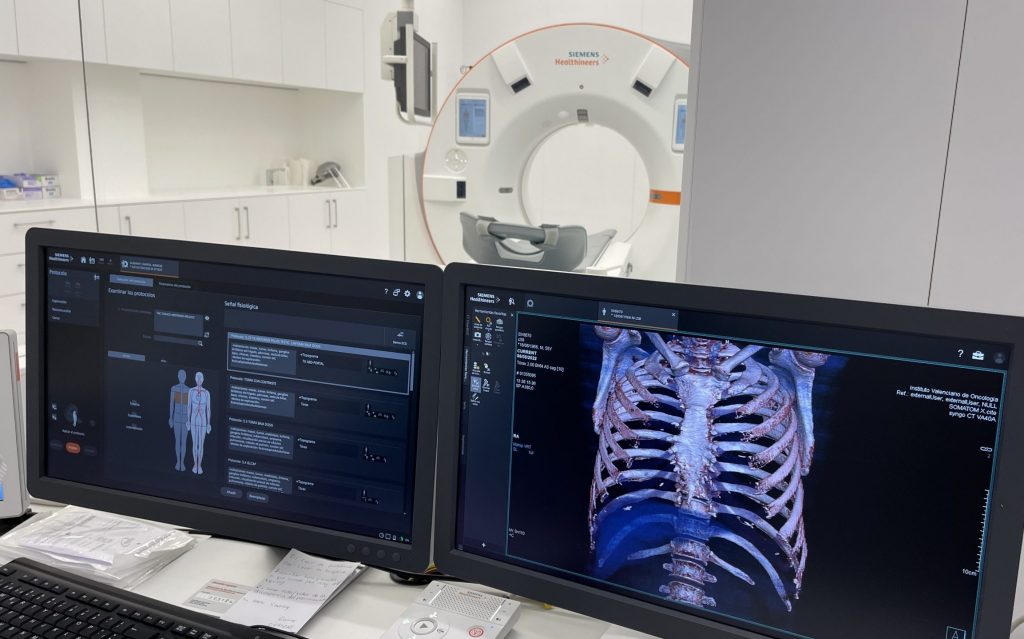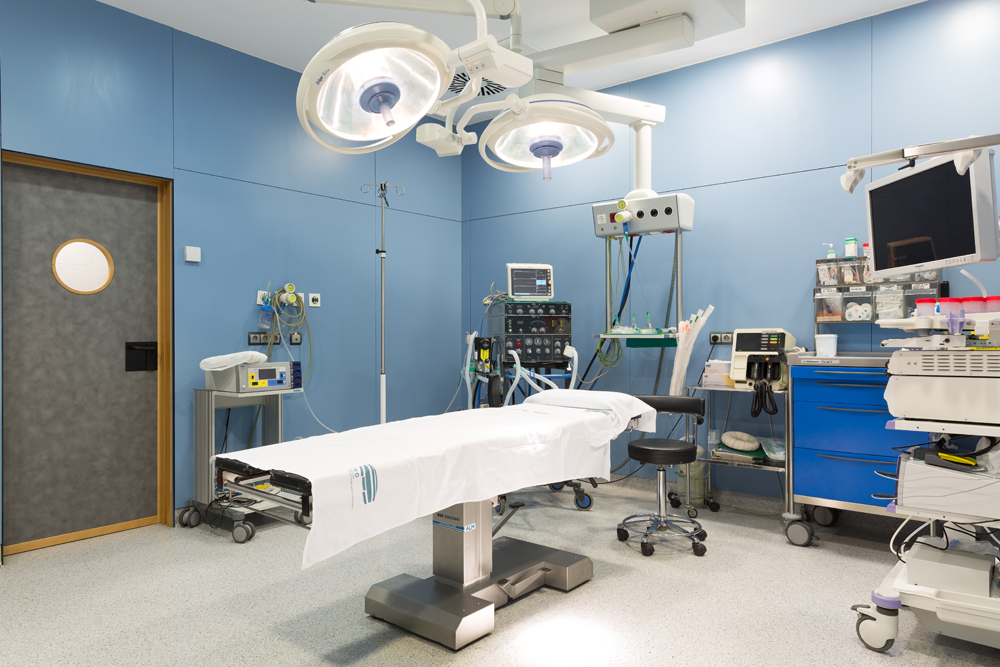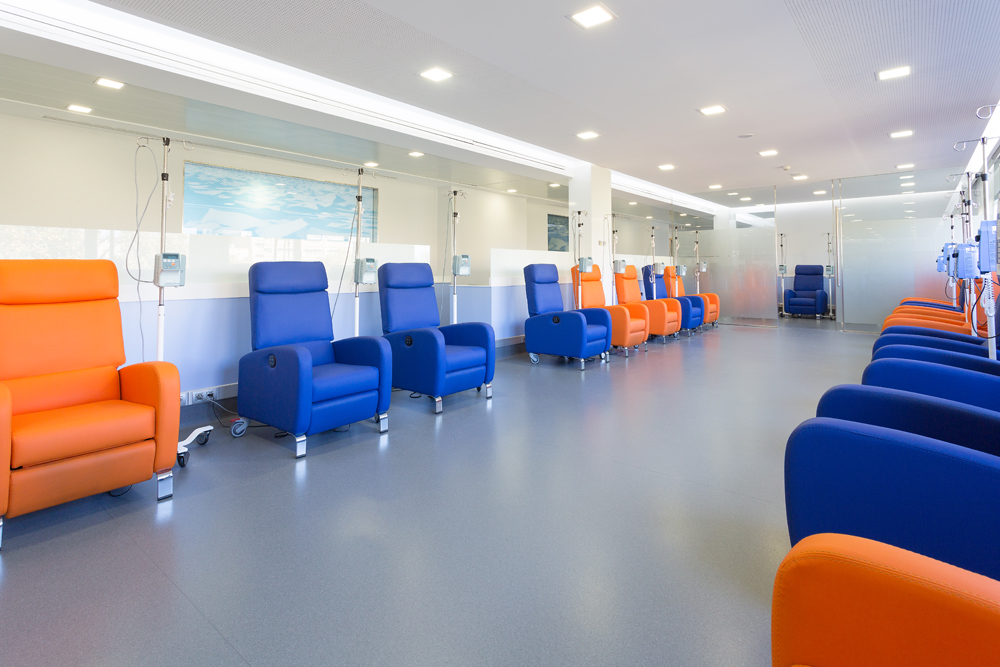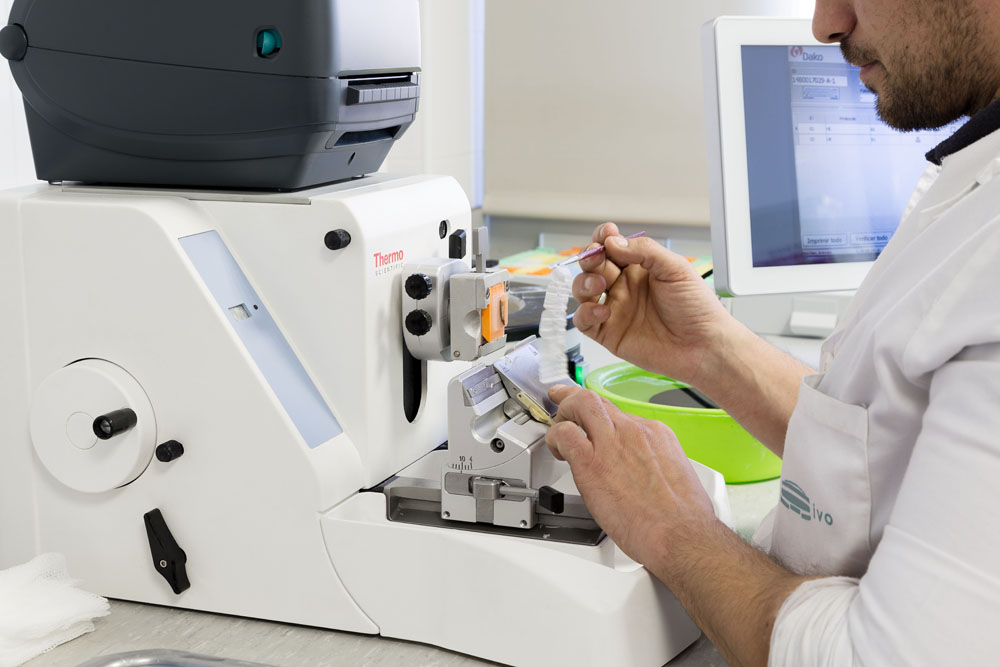It is the cancer that causes the most deaths worldwide, accounting for 16.6% of all tumours in men and 7.6% in women.
In these cases, the cancerous cells originate in the lungs and can grow to affect the surrounding structures. Depending on their initial location, these may be the ribs, heart, great vessels, oesophagus or vertebral bodies.
They may also spread through the lymphatic system, affecting the mediastinal nodes, the anatomical region between the two lungs, or the supraclavicular nodes. In addition, they can also spread through blood vessels to reach the liver, adrenal glands, brain and bones, causing metastases.
The major risk factor associated with this disease is smoking. In fact, smokers account for 80-90% of people who suffer lung cancer and their risk of developing it is 10-20 times greater than that of non-smokers.
The most common symptoms are a frequent cough accompanied by sputum, which may be bloody, feeling short of breath, and chest pain.
Most symptoms appear when lung cancer is in an advanced stage, so early diagnosis of the disease can improve its prognosis. The most effective treatment is surgery, but this requires the tumour to be localised and not to have spread to lymph nodes or other organs.
As a centre specialising in oncology, the IVO offers diagnosis, treatment and follow-up for patients affected by lung cancer.
The IVO has the IELCAP Early Detection Unit, where the early diagnosis of asymptomatic lung cancer is carried out in people at risk (over 50 years of age and with a smoking habit of more than 15 years) through the performance and periodic study of a multislice CT scan. This programme is part of an international project against lung cancer led by the Cornell University Medical Center and coordinated by the Arizona Biotechnology Institute and the Mount Sinai Medical Center in New York.
